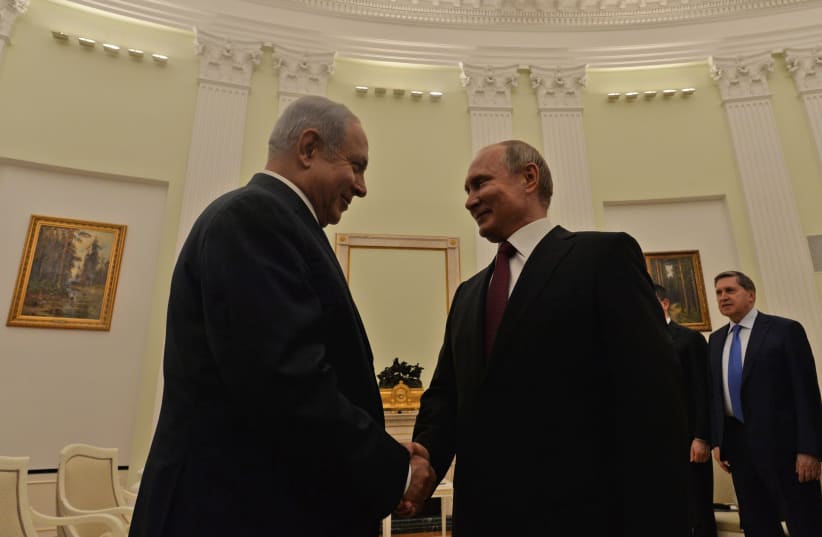Russian envoy: Moscow, J'lem reached understandings on southwest Syria
Netanyahu and Putin have met three times this year, and have now spoken on the phone at least 10 times, a frequency that underlines the degree of coordination between the two countries.
